
Niccolò Piccinni was an Italian composer of symphonies, sacred music, chamber music, and opera. Although he is somewhat obscure today, Piccinni was one of the most popular composers of opera—particularly the Neapolitan opera buffa—of the Classical period.
Iphigénie en Tauride is a 1779 opera by Christoph Willibald Gluck in four acts. It was his fifth opera for the French stage. The libretto was written by Nicolas-François Guillard.

Opera seria is an Italian musical term which refers to the noble and "serious" style of Italian opera that predominated in Europe from the 1710s to about 1770. The term itself was rarely used at the time and only attained common usage once opera seria was becoming unfashionable and beginning to be viewed as something of a historical genre. The popular rival to opera seria was opera buffa, the 'comic' opera that took its cue from the improvisatory commedia dell'arte.
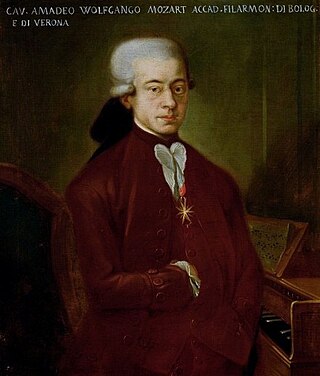
Il re pastore is an opera, K. 208, written by Wolfgang Amadeus Mozart to an Italian libretto by Metastasio, edited by Giambattista Varesco. It is an opera seria. The opera was first performed on 23 April 1775 in Salzburg in the Rittersaal of the Residenz-Theater in the palace of the Archbishop Count Hieronymus von Colloredo.
Armide is an opera by Christoph Willibald Gluck, set to a libretto by Philippe Quinault. Gluck's fifth production for the Parisian stage and the composer's own favourite among his works, it was first performed on 23 September 1777 by the Académie Royale de Musique in the second Salle du Palais-Royal in Paris.
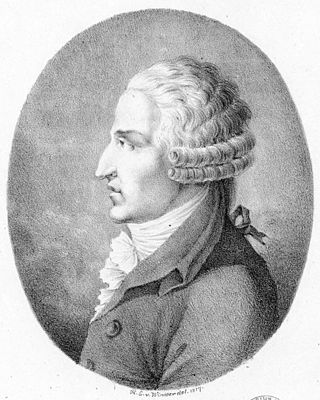
Pasquale Anfossi was an Italian opera composer. Born in Taggia, Liguria, he studied with Niccolò Piccinni and Antonio Sacchini, and worked mainly in London, Venice and Rome.

Antonio Maria Gasparo Gioacchino Sacchini was an Italian composer, best known for his operas.

Nicolas-François Guillard was a French librettist. He was born in Chartres and died in Paris, the recipient of a government pension in recognition of his work writing librettos. He was also on Comité de Lecture of the Paris Opéra. One of the foremost of the French librettist of his generation, he wrote libretti for many noted composers of the day, including Salieri and in particular Sacchini. His most famous work is Iphigénie en Tauride, his first libretto, set by Gluck after the composer had initially rejected it. Gluck collaborated with Guillard to heavily recast the libretto, not only to suit Gluck's artistic preferences, but also to accommodate pre-existing music that Gluck borrowed, both from himself and from other composers, when composing the opera.
Ifigenia in Tauride can refer to:
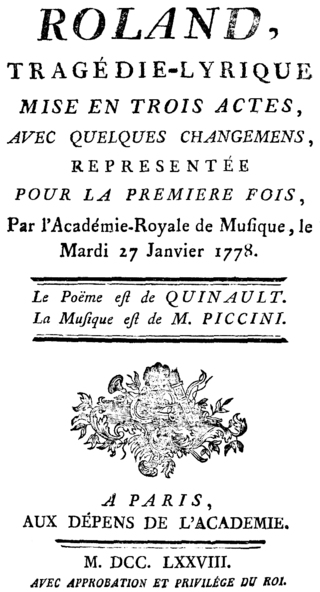
Roland is a tragédie lyrique in three acts by the composer Niccolò Piccinni. The opera was a new setting of a libretto written by Philippe Quinault for Jean-Baptiste Lully in 1685, specially adapted for Piccinni by Jean-François Marmontel and based on Ludovico Ariosto's epic poem Orlando Furioso. The opera was first performed on 27 January 1778 by the Académie Royale de Musique at the Théâtre du Palais-Royal.

Iphigénie en Tauride is a tragédie lyrique in four acts by Niccolò Piccinni, which was first performed on 23 January 1781 by the Académie royale de musique in the second Salle du Palais-Royal. The opera's libretto, by Alphonse du Congé Dubreuil, is based on a play of the same name by Claude Guimond de La Touche, although the ultimate source was the tragedy Iphigeneia in Tauris by Euripides.

Caterina Gabrielli, born Caterina Fatta, was an Italian coloratura singer. She was the most important soprano of her age. A woman of great personal charm and dynamism, Charles Burney referred to her as "the most intelligent and best-bred virtuosa" that he had ever encountered. The excellence of her vocal artistry is reflected in the fact that she was able to secure long-term engagements in three of the most prestigious operatic centers in her day outside of Italy.
Gennaro Astarita was an Italian composer, mainly of operas. The place of his birth is unknown, although he was active in Naples for many years. He began his operatic career in 1765, collaborating with Niccolò Piccinni in the writing of the opera L'orfana insidiata. He became the maestro di cappella in Naples in 1770.
Iphigenia is a figure in Greek mythology.
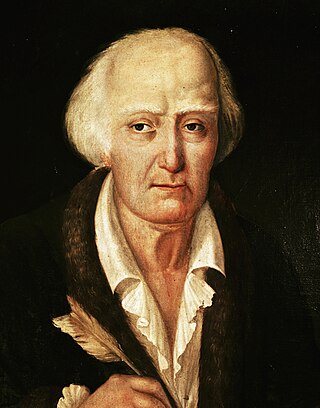
Giacomo Domenico Mario Antonio Pasquale Giuseppe Tritto was an Italian composer, known primarily for his fifty-four operas. He was born in Altamura, and studied in Naples; among his teachers were Nicola Fago, Girolamo Abos, and Pasquale Cafaro. Amongst his pupils were the young Vincenzo Bellini around 1821, plus Ferdinando Orlandi. He died in Naples.
Jean-Baptiste Lemoyne or Moyne was a French composer, chiefly of operas.
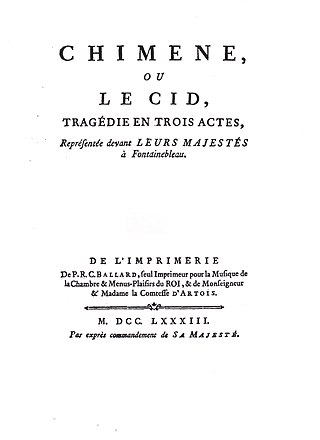
Chimène, ou Le Cid is a French-language opera by Antonio Sacchini. It takes the form of a tragédie (lyrique) in three acts, with a libretto by Nicolas-François Guillard. It was first staged at Fontainebleau on 16 November 1783. The subject of the work was inspired by the tragicomedy Le Cid by Pierre Corneille, and indirectly by the medieval Spanish epic Cantar de Mio Cid and a play by Guillén de Castro y Bellvís, Las Mocedades del Cid. Comedia Comedia primera and segunda (1605–1615).
Il re pastore is an opera by the composer Christoph Willibald Gluck. It takes the form of a dramma per musica in three acts. The Italian-language libretto is by Pietro Metastasio. The opera premiered on 8 December 1756 at the Burgtheater, Vienna.
Il re pastore is a 1751 Italian-language opera libretto written by Metastasio. It was first set by Giuseppe Bonno in 1751, but best known today in the version by Gluck (1756) and the Il re pastore of Mozart (1775).
Ipermestra is an opera libretto by Pietro Metastasio first set by Johann Adolph Hasse 8 January 1744, and in the November of the same year by Christoff Willibald Gluck.









